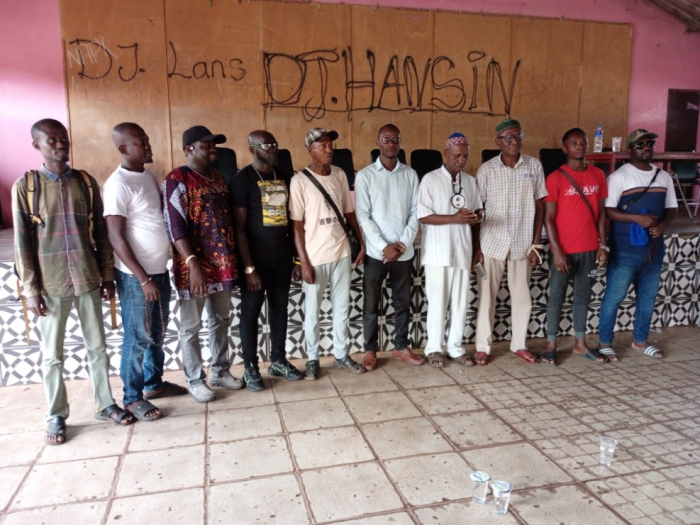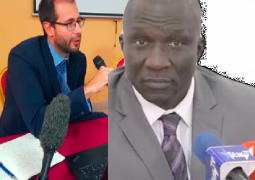
The group asserted that the initiative poses serious concerns regarding electoral manipulation and national security risks.
At a press conference held yesterday at St. Charles Parish Hall, members of the pressure group accused the government of using its controversial ID card initiative as a tactical move to influence the outcome of the 2026 presidential election.
They alleged that the scheme is designed to register individuals outside the country who would later be transported to vote. The group issued a strong warning, vowing to stage protests or take legal action should the government proceed with its plans to register Gambians in countries such as Congo, Togo, Gabon, and other African states. The group further claimed that the move raises serious questions about transparency, budgetary accountability, and potential misuse of national documents ahead of the 2026 presidential elections.
Hagi Sawaneh, the chairman of the pressure group, said: “We are deeply concerned, particularly when Gambians within the country struggle to obtain ID cards. Even if the justification for issuing ID cards in Mauritania seems partially valid, we believe it must be done in a fair and accountable manner,” he emphasised.
Following reports of similar plans to extend the scheme to countries such as Togo, Gabon and Congo, Sawaneh added: “There is lack of clarity surrounding the initiative. Before embarking on such a programme, the government must disclose how many Gambians are living in these countries and justify the rationale behind issuing national documents there. Without these details, the scheme seems suspicious and may be designed for future electoral manipulation.”
He added: “Why is the government handing out ID cards free of charge in foreign countries, yet unable to consistently provide them to citizens who need them here for essential transactions? It’s unjustifiable,” he postulated.
Sawaneh recalled incidents from the 2021 voter registration period, stating: “Several vehicles allegedly travelled from Mauritania carrying individuals who claimed to be Gambians. They registered and voted, and it was prominent members of the ruling party who reportedly facilitated their entry,” he alleged.
The pressure group, he went, is apolitical, saying: “Our aim is to protect the integrity of national documents. We’re not promoting any partisan politics, but we will defend the credibility of our ID cards and voter registration cards.”
He raised alarm over potential security risks, saying: “The poorly regulated issuance of ID cards could allow criminal elements to exploit the system. “This jeopardises national security and undermines trust in our identification system,” said group leader Mr. Sawaneh.
He called for an immediate suspension of the ID card scheme, citing its failure to meet criteria for merit, safety, and equitable distribution.
Sawaneh also decried the recent increase in nomination fees for council and presidential candidates, branding it “a direct affront to democracy.” He argued that the hike discriminates against financially disadvantaged individuals and discourages independent candidates, disproportionately empowering the incumbent party.
Another group member, Ebrima Sorrie Bah, described the overseas ID card issuance as a covert tactic designed to gauge political strength in non-democratic countries. “They know they cannot win in 2026, so they’re attempting to equip foreigners with ID cards to influence the vote, especially if the diaspora is allowed to participate.”
Mr. Bah concluded with a stern warning: “If the government persists with the scheme, we are prepared to pursue legal action or stage public protests.”





